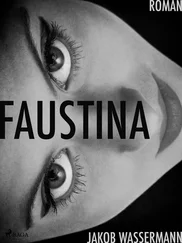It took no particular cleverness or endeavour on Ganna’s part to induce me to have my new possession — this house, the workplace and refuge intended for me personally — registered in her name as well. One day we went along to the land registry office and Ganna was legally made co-owner of the villa. I gave the matter no thought whatsoever. I didn’t think that I was thereby relinquishing the one and only thing that was entirely mine. I didn’t reflect that I was establishing Ganna in a feeling of ownership and entitlement that — beyond the actual name on the deeds — signified in some magical sense a transfer of body and soul.
But I was only superficially engaged with all this. In hindsight, these years came to seem like a trek along a dark, overhung path, with rare moments of rest or looking up. I could sense that tremendous things were imminent. The black cloud, still invisible below the horizon, was already projecting electric waves, and I was continually nervous, like a bird before a storm. There was an awful magic being wrought over the land and over the people, I felt ill at ease when I walked at night, as I often had occasion to, through the streets of German cities; I suffered from my second sight like a sleeper dreaming his house is on fire. It seemed to me another world was claiming me than the one in which I had thus far been content to be. What I had achieved seemed negligible, inadequate; it spoke to too few people, it existed in outmoded forms. I had a sense of others, waiting, but I didn’t know anything about them. I was still far from my limits, and far from myself; if I failed to break through my crust, then I would find myself crushed by it.
My senses too were aflame. Ravenous appetite alternated with satiety. No woman was enough for me; none gave me what I was dimly seeking: a sense of who I was, some final easement of the blood. I went from one to another, and it was often as though I had to break them open like a husk or shell with unknown contents, peeling them like a fruit which I then discarded. It wasn’t Don Juan-ishness, nor was it sheer lechery either. There might have been something in it of the misunderstanding that takes the living being and half-angrily, half-playfully exchanges it for an imaginary one, and contents itself with that because it can’t perfect the other. Perhaps it was something to do with the tragedy of the male who sets off towards the glacial region of symbols and en route forgets himself with warm-blooded nymphs.
By the time the baby was born, we were already living in our new house.
THE TRUTH BEGINS TO DAWN
Only then did events with the school board take on the shape of the catastrophe that deeply affected both Ganna’s life and mine. The main cause of the trouble was that Ganna stubbornly refused to make over the meadow to the company. The stockholders described it as intolerable that the extensive land for the project, on which the newly built school was standing, should remain in separate ownership, and that the owner, herself a member of the board, should charge a substantial rent for it. In the course of stormy meetings, Ganna was upbraided for the immoral and unbusinesslike nature of the situation. It made her look bad, it was said, that she laid claim both to the idealism of the project and the lion’s share of the profits. That is very much the way of it: people who have disappointed expectations of money are extremely hard on those who, while on the side of the angels, also want to turn a profit. That’s wrong, they say, there are businessmen and there are priests, you can’t be both at once. The other side’s lawyers even contested Ganna’s title. Their claim was that Ganna had managed to acquire the title by some underhand method, and they sought to expose it.
Ganna is left reeling. The world is darkening on her. She swears sacred oaths that she would rather die than give up her meadow; she won’t give up a square foot of it, no, not so much as a blade of grass. Inevitably, the children, for whose sake this venture was started, become aware of their mother’s unpopularity. The advantage that Ganna sought to gain for them is lost. But neither can I find that they are disadvantaged and emotionally damaged by all this, as Ganna weepingly claims. They needed to learn to take the rough with the smooth, I opine with a calmness that drives Ganna into a fury. ‘How can you stick up for those criminals?’ she hisses at me. ‘That just shows what a weakling you are. The whole world knows that you abandon your wife at the earliest opportunity. Well, God will punish you for it.’ Those speeches! I really haven’t abandoned her, and why is she coming with her divine punishment? What does she know of God, she who only ever uses His name in vain. Her god is Ganna Herzog’s special constable, who will launch his thunderbolts the moment his dear Ganna is hurt by a bad person.
She goes up to the teachers and gives them all a piece of her mind. It fails to improve matters. Ferry goes on strike; we’ve reached the stage where the children are paying for Ganna’s misdeeds. The quality of the teaching, which Ganna once praised to the skies, is suddenly wretched. The same teachers who only recently were paragons, so many Fröbels and Pestalozzis, are now held in contempt. She sticks at nothing in her campaign against the headmaster Borngräber, with whom she was certainly once half in love. She conspires with handymen and charwomen. Day after day she hangs around with people in whom the name Herzog inspires no respect. She tussles with them. Like anyone with a political mission, she is surrounded by provocateurs and flatterers. I worry that she won’t come out of this smelling of roses.
The establishment is crumbling. She comes home in the evening shattered from her campaigns. She gulps down the warmed-up leftovers of lunch, not tasting anything, not knowing what she’s eating. She runs into the nursery, where she opens the floodgates of her dammed-up tenderness, because, with her maternal care limited to this brief interval, she tries to make up for constancy by intensity of feeling, and remains sternly unaware of anything that might show her idols in any other light than in her immediate passion. But then all it needs is for one of the children to test her patience, or not play along with her latest whim, and she starts to yell crazily at the shocked — a moment ago babied — creature, and if I try and intervene (it’s one of Ganna’s abiding characteristics that she can’t stand any contradiction, not from anyone, in any matter), then she will foam with rage. If the telephone shrills she shuffles out into the corridor in her down-at-heel slippers, and I hear her dull ‘Hallo-o’ which drives me wild with nervousness, ten times an evening, twenty — a real huntsman’s sound, it sounds like the jungle with its grim long-drawn-out ‘o-o’. It’s very evident if the person at the other end is someone who wants something from her, or if it’s someone she wants something from; if it’s the former her voice is cutting, mordant, bossy, and if it’s the latter it’s sweet, beseeching, submissive. After her supper she comes into my room and combs her hair, an activity that seems to take her for ever, during which she dreams and builds castles in the air, and chews over old wrongs she’s suffered. The comb drives crackling through her chestnut hair, her wide-open blue eyes stare fixedly into space. What they’re so fixed on is anyone’s guess, not even she herself knows; but the bottomless pain etched into her features moves me. And when I think she’s on her way to bed, so that her tortured soul will finally have some peace, she will remember something and hurry across to the desk, to compose some long screed or epistle which the next day will turn out to be perfectly meaningless and superfluous.
It’s in the nature of hell that it affords ever deeper degrees of torment and dread; you think it can’t get any worse, but you’re only in some antechamber of limbo, some zone of moderate awfulness; and that was my position when Ferry and Elisabeth were removed from the school and put in an ordinary state school instead. Whether it was punishment or a voluntary withdrawal wasn’t vouchsafed to me. Ganna claimed it was an act of revenge and I had to believe her; I had no desire to go looking for the truth, I didn’t want to create yet more conflict. The heads of the state schools had little good to say about the private school, and Ganna’s bewilderment was great when the various gymnasiums refused mid-semester to admit Ferry; and her shock was even greater when it was put down to the insufficient preparedness of the boy. Anxiety darkened my mood. I felt accountable for my son, but how could I stand up for him at the court of destiny, when his mother robbed me of all responsibility and remonstrated passionately with the judge against whose verdict there was no appeal? The thing she had tried to save him from now came to pass, with a vengeance: intellectual insecurity, academic caprice. I didn’t have the time to win back from her what she claimed from me and the world as hers of right. No, I didn’t have either the time or the energy to fight with her and persuade her to change course. I thought — maybe foolishly, maybe vaingloriously — that God had given me my days for some other purpose than that anyway. Ganna’s world was a world of limitless freedom, and for her to help herself from it equally limitlessly was the only way to happiness that she knew, even though whatever happiness resulted wasn’t what she wanted. I can remember hours when I argued with her as though my soul’s salvation depended on it, tried to break her rigid purpose, tried to make her milder, gentler, more insightful. But it was like trying to draw a face on a sheet of water. Once, in a strange fit of contrition, she said to me: ‘For you I would have to be a saint, but I can’t become holy without a mortal sin.’ I have never been able to forget those painful and terrible words. An abyss opened, at the bottom of which I glimpsed a Ganna fighting with ghostly shadows.
Читать дальше







![Jakob Wassermann - Issue Does Not Exist],errors:{](/books/585068/jakob-wassermann-issue-does-not-exist-errors-thumb.webp)




